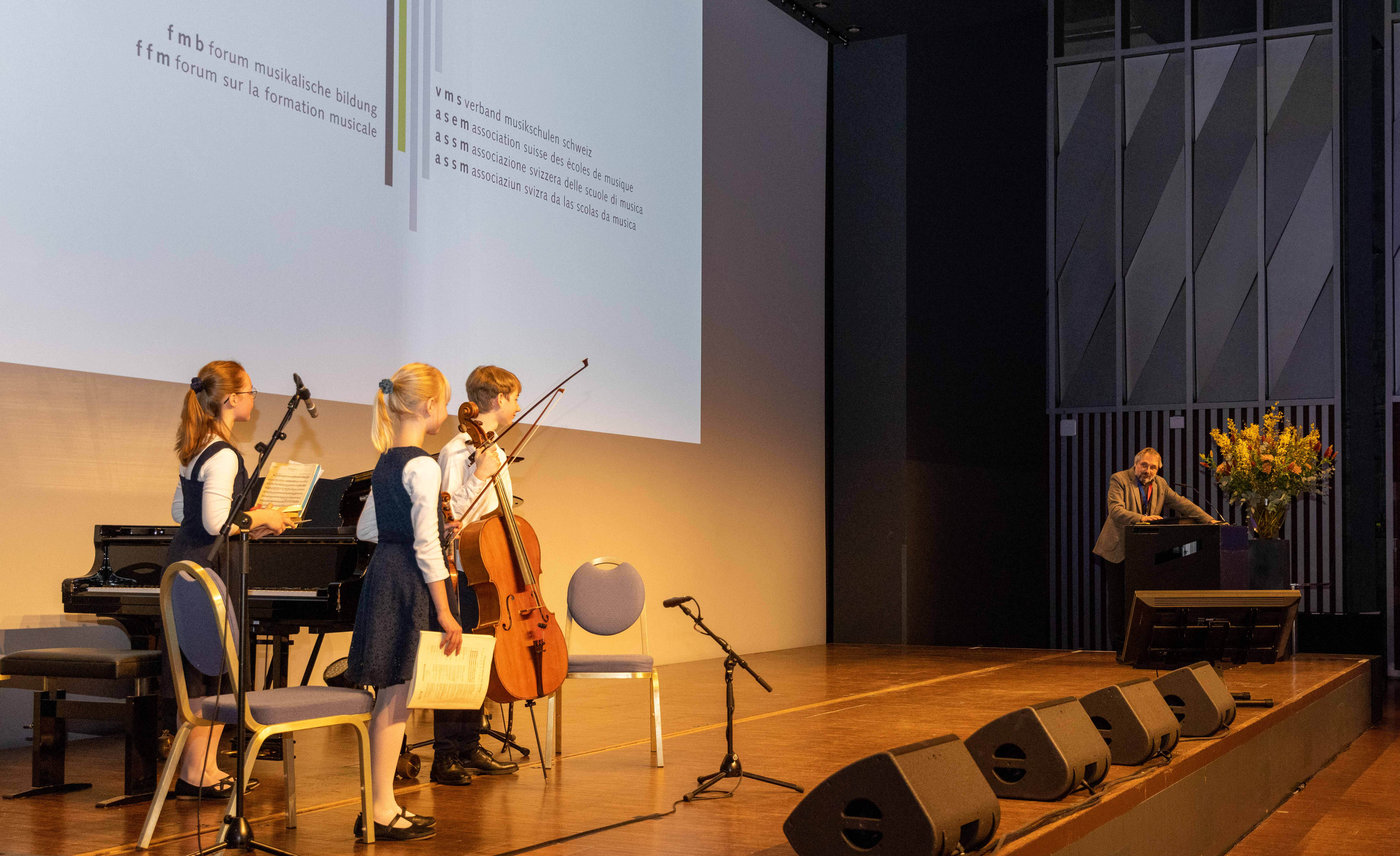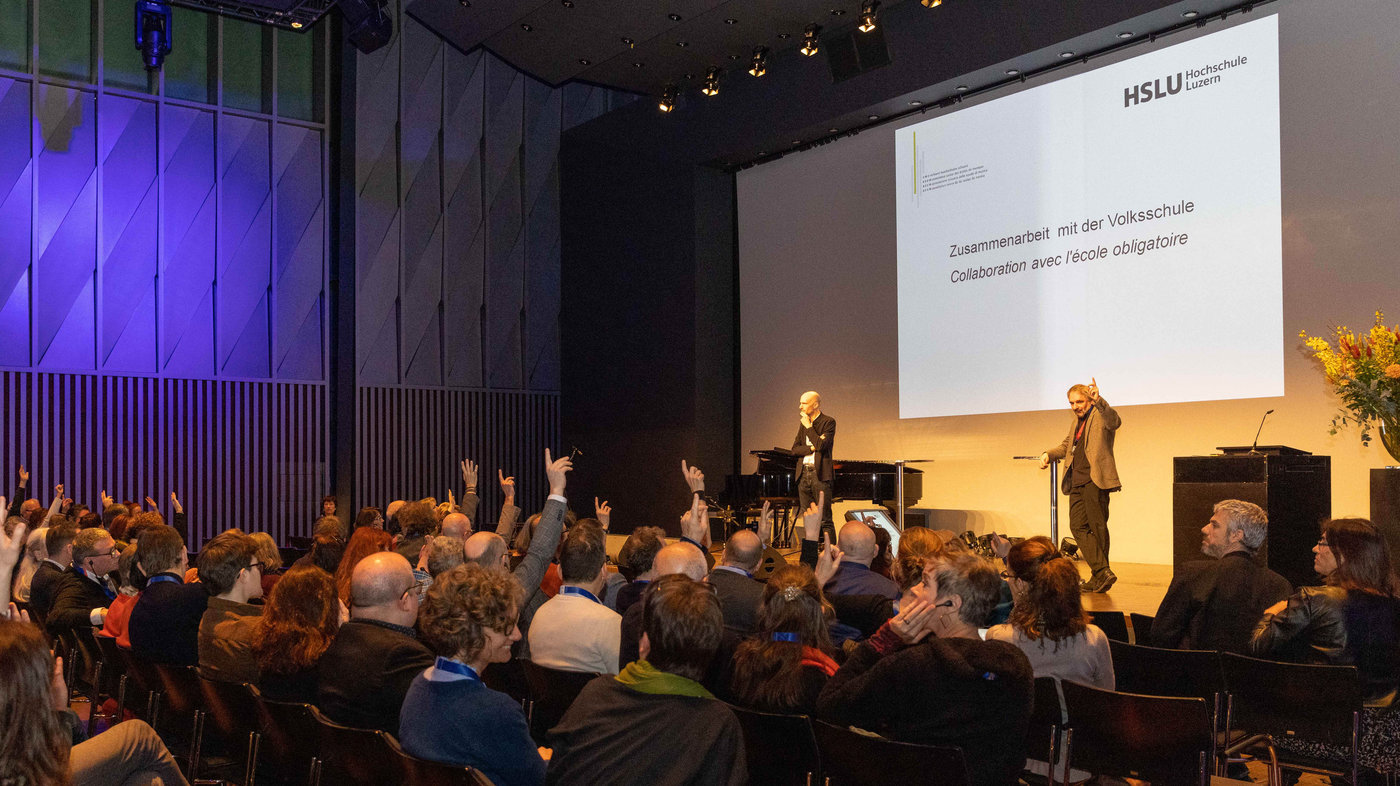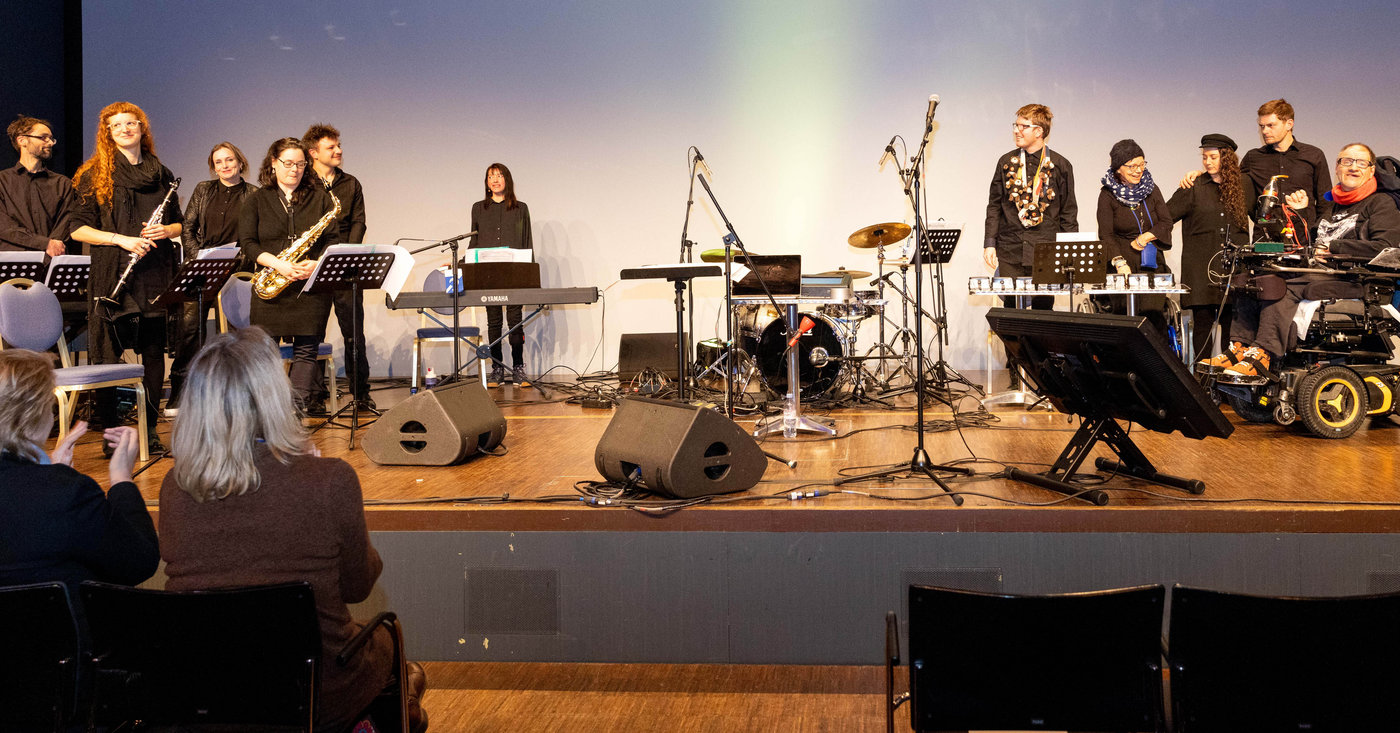The 10th Forum Music Education
With the umbrella topics of digitalization and inclusion, the 10th FMB on 20/21 January 2023 was dedicated to burning educational issues.

The Forum Musikalische Bildung (FMB) was postponed by one year in 2022 due to the coronavirus - it's hard to believe. Three years have therefore passed since the last edition. On January 20 and 21 of this year it was that time again. Launched in November 2007 by Hector Herzig, then President of the Swiss Association of Music Schools (VMS), it was held annually until 2012, then every two years (see History of the FMB). The founder had put a lot of heart and soul and idealism into this forum and made it the flagship of the association. It's a shame that Herzig didn't show up to be celebrated at the tenth edition; it's also strange that he wasn't mentioned at all.
Digitalization has passed its peak
The new VMS President Philippe Krüttli welcomed an impressive number of participants and then handed over to the event's moderator, Myriam Holzner. The first keynote speaker, futurist Joël Luc Cachelin, had already given a speech at the FMB 2018 on the topic of digitalization and education. At that time, digitality in the classroom was still perceived as something threatening in many places. The pandemic has had an accelerating effect in this area, and some things have now become a natural part of everyday teaching. Cachelin did not want to engage in a review of his predictions at the time. He preferred to take another look into the future - or rather into different futures, which he categorized by color. The pink future, for example, asks how we deal with our skills, which are increasingly being rivaled by intelligent answering machines and chat boxes. The green future is about using resources intelligently and optimizing sustainability.
And where do we stand today in terms of digitalization? According to the cycle model of the Russian economist Nikolai Kondratiev (1892-1938), Cachelin explained, digitalization has already passed its peak. Today, the focus is still on closing unfinished digital cycles and optimizing network security. Essentially, nothing will change in the nature of music education. There will still be no substitute for creativity and self-efficacy in the future. However, the speaker sees innovations in the field of digital aids and in the interaction between people making music and machines (new instruments, robotics).
Networks replace systems
The term "digital transformation" has only been around since 2014, explained Andréa Belliger, Vice-Rector at the Lucerne University of Teacher Education and Director of the Lucerne Institute for Communication and Leadership in her presentation. She pointed out a fundamental difference: "The digital transformation is a process of social change. It changes norms and attitudes and is more than just digitalization." Technology enables a high level of connectivity, which poses a major challenge for the education system in particular. Countless do-it-yourself teachers are flooding the web with e-learning courses. "Flipped classroom", "seemless learning" or adaptive learning are just some of the many buzzwords. Platforms such as moog.org or khanacademy.org offer a comprehensive range of didactically perfectly prepared, free online courses that enable self-directed and participatory learning. Belliger identified a paradigm shift in forms of teaching and learning: "We are in the transition between system and network." Under these circumstances, institutions, including music academies, must ask themselves the fundamental question of their mission.

How is music learned in Switzerland?
Valentin Gloor, who was a member of the VMS board four years ago and is now Director of the Lucerne University of Music (HSLU) and Vice President of the Swiss Conference of Music Universities, gave an outline of the broad-based research project "Music Learning Switzerland" together with Philippe Krüttli. (The SMZ has reported) Under the chairmanship of Marc-Antoine Camp, head of the Competence Center for Research in Music Education at the HSLU, and in collaboration with the VMS and 37 professional associations and institutions of music education, the extracurricular music learning landscape in Switzerland was examined.
Gloor summed up the aim of the study: "We wanted to know where we are heading." Eight fields of action emerged in the end. These include offers for pre-school children, cooperation with elementary school, talent promotion, musical offers across all age groups and the expansion of the music education professional profile. The latter will soon be included in the new version of the corresponding VMS document. In the ensuing discussion, cooperation with elementary school and the professional profile were discussed. On the subject of elementary school, there was a consensus that the institutions should move closer together. The second topic is related to the first, as there is a widespread lack of training courses that qualify instrumental teachers to teach at elementary school. On the other hand, there is an increasing lack of musical teaching skills among newly qualified primary school teachers.
Everyone has impairments
The second day was packed with five presentations and a discussion round. In addition, the best practice competition from the previous day was brought to a close. Principal Sandro Häsler had the opportunity to present his successful composition project for students, "My Music". Laurent Gignoux from the Bordeaux School of Music presented two socially motivated orchestra projects at French schools. "Orchestre en classe", a type of classroom music-making, has been running since 1999 and now involves 40,000 children. In 2010, the Cité de la musique - Philharmonie de Paris founded "DÉMOS, Dispositif d'Éducation Musicale et Orchestrale à vocation Sociale", which is aimed at children from socially or culturally disadvantaged neighborhoods or rural areas. The project is currently running in thirteen departments with a total of around 10,000 participants.
Babette Wackernagel presented her private music school "Musik trotz allem" for people with disabilities. People with disabilities are de facto excluded from the musical education canon today because there is hardly any further training in this area and music teachers are therefore afraid to engage with these people. Wackernagel appealed for an open-minded approach to teaching people with disabilities.
Christoph Brunner, Equal Opportunities and Inclusion Officer at Bern University of the Arts, put the concept of disability into perspective and made it clear that non-disabled people also experience impairments and deficits at every turn in their everyday lives. He pointed out that Switzerland's Disability Equality Act and the UN Convention on the Rights of Persons with Disabilities have not yet been implemented.
Felix Klieser gave an impressive performance. The internationally active horn soloist and lecturer at the Münster University of Music has no arms. He talked about his career as a professional musician. What bothers him most is the deficit orientation in dealing with people with disabilities. The art of teaching consists of understanding each person and finding out how to solve a problem. This applies to both disabled and non-disabled people. He doesn't like the term "inclusion" because it implies that the people it refers to are unable to do something.
Jacques Cordier from the Conservatoire de Grenoble specializes in the construction of instruments that can also be operated by people with severe disabilities. He develops interface systems that are used between people and instruments, for example electromagnetic mallets and keys that can be operated with different parts of the body. The supporting musical program was, as always, of a high standard. Tabula Musica Orchestra to experience an ensemble with disabled and non-disabled musicians. Such constructions were used live here.
(The Schweizer Musikzeitung is a media partner of the FMB).









